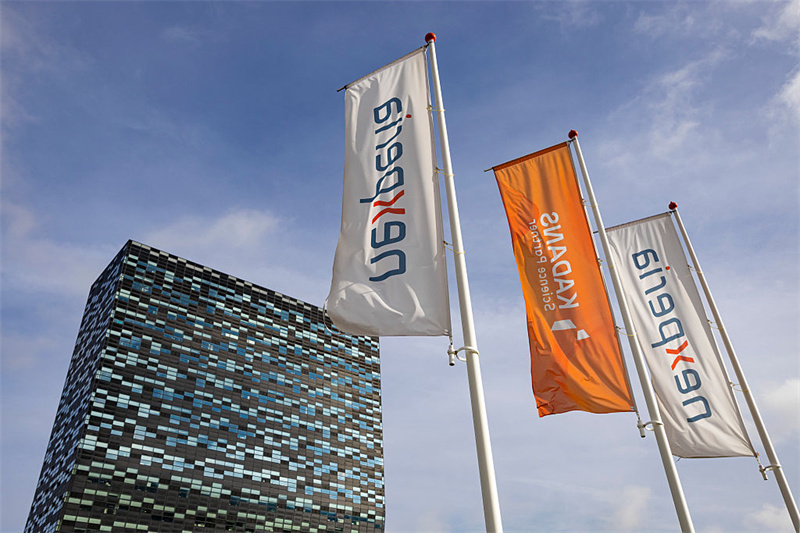Europe's semiconductor supply chain is facing mounting disruption as internal tensions at Nexperia continue to escalate, raising the risk of new chip shortages across the global automotive sector.
In October, the Netherlands invoked the Cold War-era Goods Availability Act to temporarily seize control of Nexperia, citing "serious governance shortcomings" with potentially far-reaching consequences for European economic security. The move effectively removed the China-based CEO and strengthened state oversight of the company.
Following the intervention, Nexperia's Europe-based operations halted wafer shipments to its major backend manufacturing site in Dongguan, China. The stoppage has severely strained relations between Nexperia Europe and Nexperia China, where most of the company's automotive-grade chips are assembled and tested before being shipped worldwide.
Industry executives told the Financial Times that automakers and Tier-1 suppliers are now "working around the clock" to secure alternative sources. Some warned that inventories at the China facility could run out by mid-December, potentially triggering fresh production outages just as the automotive sector is recovering from years of semiconductor instability.
The European Automobile Manufacturers' Association (ACEA) said the situation is no longer regulatory but operational: Nexperia Europe has restricted shipments over what it described as financial noncompliance and failure by the China subsidiary to follow internal directives. "We welcome China's recent relaxation of export controls," ACEA said. "But as long as wafer shipments to China remain blocked, we cannot obtain sufficient chips to meet global demand. The direction is right, but the problem is not resolved."
Nexperia's components—such as MOSFETs, ESD protection devices, and small-signal logic—are inexpensive, often costing less than one dollar each, but are used in large quantities across vehicles, from safety-airbag controllers to window switches. A single automotive PCB may require dozens of such chips.
Volkswagen said its German plants have not yet been affected but emphasized that the situation remains "dynamic and full of uncertainty." Other automakers warned their buffer stocks may last only a few weeks.

Background: Security Concerns and Russia Links
The Dutch intervention was not solely about internal governance. Nexperia's parent company, China-based Wingtech Technology, has been under increasing scrutiny. In 2024, U.S. authorities placed Wingtech on the Entity List over concerns about China's semiconductor ambitions and military relevance.
Dutch officials also cited risks linked to sanctions evasion. According to Ukraine's War and Sanctions database, Nexperia components have been repeatedly found in Russian weapons systems—including Kh-101 cruise missiles and several types of drones—despite European export controls. Some chips were manufactured after 2022, further raising concerns about Western technology reaching Russia through third-country intermediaries.
With access to the company's internal data, the Dutch government now has an opportunity to audit supply-chain controls and evaluate compliance with the EU's 2024 dual-use technology due-diligence requirements.
Customers Move Toward Temporary Workaround
In recent weeks, some of Nexperia's major automotive customers have begun collaborating with the company on a workaround to bypass the internal standoff, two sources told Reuters.
Under this temporary method, clients buy silicon wafers directly from Nexperia's Hamburg fab, arrange their own logistics to ship them to China, and then contract the Dongguan plant for packaging services. The approach effectively treats Nexperia Europe and Nexperia China as separate entities, allowing both to be paid independently.
The workaround is seen only as a "short-term patch," and not feasible for smaller customers. Nexperia China is already selling down existing stockpiles of finished products, but it remains unclear how long those inventories will last.
Other potential solutions being explored include replacing Nexperia devices with comparable components from Onsemi or STMicroelectronics, though compatibility varies by module.
Longer-term, Nexperia's European operations are looking to expand packaging capacity in Malaysia and the Philippines, while the China unit is exploring using domestically produced wafers to reduce reliance on Europe.
Outlook
With automakers warning of potential supply exhaustion within weeks, the Nexperia dispute has surfaced as the most acute semiconductor-supply risk facing Europe since the pandemic-era shortages. Unless the internal rift is resolved—or the workaround becomes widely viable—the global automotive industry could again face production disruptions sparked by small but indispensable low-cost chips.
+86 191 9627 2716
+86 181 7379 0595
8:30 a.m. to 5:30 p.m., Monday to Friday
